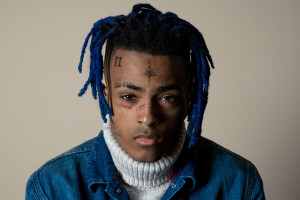The pattern of male artists being excused for their abuse of women is nothing new, but the impact this has on the validity and importance of their art is still a divisive topic. The death of rapper XXXTentacion in June sparked debates on whether or not his art can be critiqued separately from his history of abuse.

XXXTentacion had a history of violence before his domestic violence charges, but wasn’t scrutinized by the public until he was charged with aggravated battery of a pregnant woman and domestic battery by strangulation in 2016. XXXTentacion was in and out of jail, with more charges being added to his domestic violence charge after coercing his ex-girlfriend to sign a document saying that she wanted to drop the charges. He was released from jail to remain on house arrest, but was then released from house arrest so that he could go on tour.
XXXTentacion was killed in a drive-by shooting while awaiting his trial. In the days following his death, his music climbed rankings and his album sales rose by 4730 percent. His death divided the internet, with many fans expressing frustration that people were bringing up his domestic violence charges. When artists pass away, it is common for people to become defensive of the artist when anyone tries to critique them and their work.
This phenomenon is not limited to XXXTentacion as many artists alive today are still famous despite their history of abuse. Music by known abusers such as Chris Brown, R. Kelly and Kodak Black is still popular in mainstream culture. Brown and Kelly have been charged and arrested for allegations of sexual abuse, and Kodak Black is awaiting his April trial date for sexual assault charges. It is widely known that all three of these artists have histories of sexual abuse and domestic violence, yet they are still supported by fans. Kelly was recently dropped by his record company, RCA, after the documentary “Surviving R. Kelly” was released in January that detailed testimonies from his victims of sexual assault and abuse.
Despite being dropped from his record label, Kelly is still featured on streaming services such as Spotify. Spotify briefly removed Kelly’s music from promotional and algorithmic playlists as a part of its Hate Conduct and Hateful Conduct Policies. Along with Kelly, XXXTentacion was the only other artist removed from Spotify playlists. While the policy was scrapped less than a month after being instated and XXXtentacion’s music was added back to playlists, Spotify still does not promote music by Kelly.
XXXTentacion connected with youth through the discussion of mental illness and suicide in his music, and many praise him for helping them through difficult times. While XXXTentacion has helped people, he also hurt people, and the positive impact of his music should not overshadow the negative impacts of his abusive behavior.
While Brown, Kodak Black, Kelly and XXXTentacion do not explicitly reference their abusive behavior in their songs, it influences the way their art is received. Outside of the music industry, there is a history of excusing the abuse of women by the talent of male artists.
It is impossible to completely separate art from its artist. Although beautiful and impactful art can be created by artists who commit heinous acts, we need to be careful about using their art to justify these actions. When artists are not held accountable for their abusive behaviors, it trivializes the subject and makes it less likely for victims of abuse to come forward in the future. While it is already extremely difficult for victims of abuse to report their abuser, it is even more difficult when the abuser is a famous artist with a large fanbase.
Because of these mens’ artistic “genius” and talent, they are often seen as deserving of a second chance. While people have recognized that XXXTentacion could have had the potential to grow and change, we also need to make space for survivors and talk about the potential he robbed from his victims of abuse.
